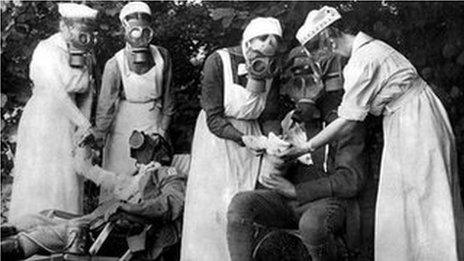WW1: Exhibition focuses on Irish men who fought in Gallipoli campaign
- Published
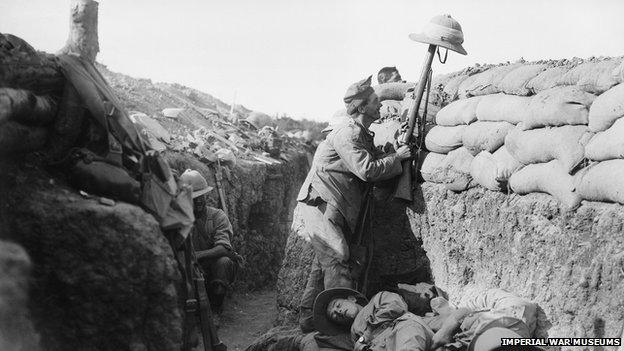
A Royal Irish Fusilier attracts sniper fire by holding his helmet above the trench on his rifle
What would you have done if all your friends signed up for a war?
That's a question posed by a new exhibition that focuses on four Irish men who fought for the British at Gallipoli in Turkey during the First World War.
It is not in the exhibition but there is a British Pathé film that re-enacts the attempted allied landing on Turkish soil to open a new front.
One hundred and twenty thousand men were involved - Australians, New Zealanders and British soldiers, including many from Ireland.
The film's commentary gives a good idea about what went wrong.
Commemoration
"Of course in the newspapers the military communiqué didn't give all the small details; details like an enemy waiting for them. But the soldier knew someone had blundered. Theirs is not to reason why; theirs is not to make reply," the commentary says.
The operation was doomed and it cost Winston Churchill, whose idea it was, his job.
The Irish experience at Gallipoli is now being commemorated in a two-year long exhibition called Recovered Voices at the National Museum in Collins Barracks in Dublin.
Lar Joye, the curator of military history, says: "Just short of 15,000 Irish men fought in Gallipoli. Their story has in many ways been over-shadowed by the Australians and New Zealanders. But just about the same number of Irish men died as New Zealanders; about 3,500 Irish men died there."
The story of some of those soldiers is told in an hour-long play now showing several times a day until the end of April 2015 - also in Collins Barracks.
Called Pals, it is based on true stories about four young Irish men - three of whom were friends from Trinity College - who went to Turkey.
The director, Louise Lowe, believes events back home explain why the Irish Gallipoli involvement was until relatively recently over-looked.
"What shook me was that they obviously didn't know what was going to happen a year later with the 1916 rebellion," she says.
The exhibition focuses on four Irish men who fought at Gallipoli in Turkey during the First World War
"And the history they thought they were making and which, they thought was going to make the country proud of them, was completely obliterated."
The play is in many ways a new way to explain history.
And one day a week, secondary school students come to see the drama, discuss it and get involved in workshops afterwards.
Saoirse Woods from Caritas School in Ballyfermot in Dublin says she thought the play was "really good".
"The acting was brilliant and it was very realistic and it gave me a better outlook on what World War One was really like," she said.
Question
The plays also poses the question: what would you have done if your pals had all signed up?
The majority of the Caritas students, including Shazny McNally and Robyn Barnwell, say they probably would also have signed up - some for financial as well as reasons of friendship - but that they would quickly have regretted it.
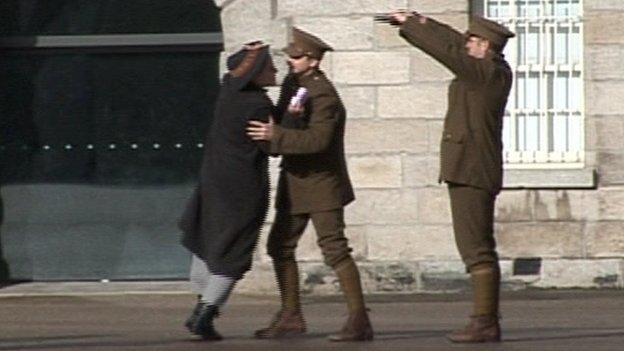
The story of the soldiers is told in an hour-long play performed at Collins Barracks in Dublin
Robyn says she probably would have gone to war "but seeing the play gave me a better perspective of war".
"It's disgusting, killing all those people, it's just horrible," she said.
Shazny agrees that war is disgusting.
"Learning about it makes me feel really sad to think that soldiers went through everything that they did; it's really painful," she says.
- Published19 February 2015
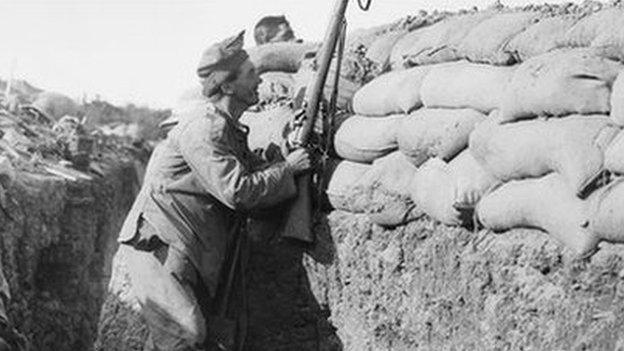
- Published15 February 2015
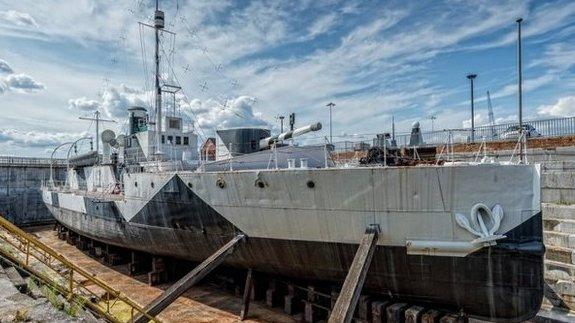
- Published8 February 2015
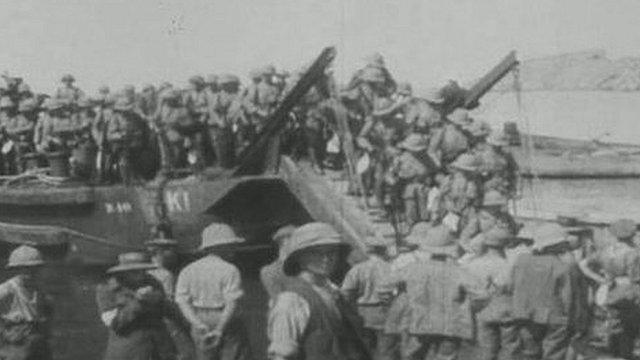
- Published2 April 2014
